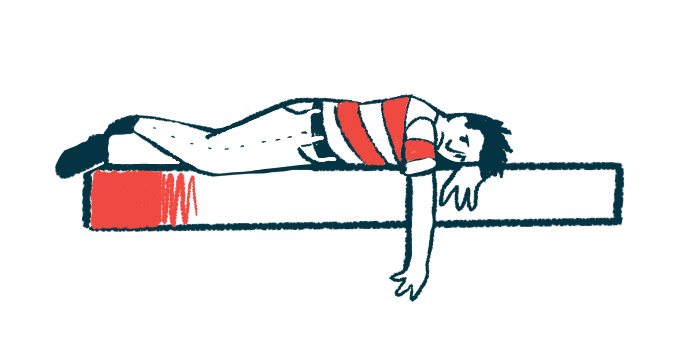Mental health medications may ease hyperactivity, depression in DMD
But some side effects seen in treating patients' neurobehavioral problems

Mental health medications, including the stimulant methylphenidate, may help ease neurobehavioral problems in boys and young men with Duchenne muscular dystrophy (DMD), according to a small study by researchers in Belgium and the Netherlands.
However, some adverse reactions may occur with the use of such medications, the team found, recommending that clinicians “closely monitor the (un)wanted effects of [psychopharmaceutical drugs] treatment in DMD” patients.
“Altogether, treatment with methylphenidate seems to be a possible solution for DMD boys with inattentiveness, hyperactive features, learning problems and emotional and behavioral dysregulation when good management of side effects and rebound effects, as well as therapeutic goals are achieved,” the researchers wrote.
“We believe that the present findings can be of help for clinicians working with DMD patients, when psychiatric symptoms interfering with development appear,” the team added, noting, however, that the “methodological limitations” of the retrospective study “must be taken in mind,” and that further research is needed.
The study, “Psychopharmaceutical treatment for neurobehavioral problems in Duchenne muscular dystrophy: A descriptive study using real-world data,” was published in the journal Neuromuscular Disorders.
No guidelines exist for use of mental health medications in DMD
DMD is a muscular dystrophy caused by mutations in DMD, a gene that codes for the dystrophin protein, which protects muscles and helps them stay strong. The mutations cause dystrophin to not be produced at all. As a result, muscles become weak over time.
While the disease is best known for affecting movement, it also may cause neurobehavioral problems, which refer to ways the brain affects behavior, emotion, and learning. Common problems are inattention and hyperactivity, possible learning delays, and depression.
International guidelines recommend that “patients with DMD should be regularly screened for neurobehavioral problems,” the researchers wrote.
“But what to do when these are detected, is not specified,” they added.
The same guidelines say that mental health medications, also known as psychopharmaceuticals, “could be of help,” but there’s not much evidence on how to use them or who they may benefit.
To know more, the researchers drew on data from 52 boys and young men with a genetic diagnosis of DMD who took psychopharmaceuticals for varying time periods between 2008 and 2022. The mean age of these DMD patients was 11, ranging from 5 to 23 years.
More than half (55.8%) experienced four or more neurobehavioral problems. The most common were inattention (63.5%) and emotional and behavioral dysregulation (59.6%), followed by sleep problems (51.9%), and hyperactivity (44.2%).
Most (92.4%) were taking standard-of-care corticosteroids, mainly prednisone and deflazacort (sold as Emflaza and also approved as a generic), to improve muscle strength and slow muscle weakening.
At the time of data collection, 30 patients (57.7%) were still taking psychopharmaceuticals. The remaining 22 (42.3%) had stopped taking them because they either had side effects, didn’t work as expected, or because the neurobehavioral problems had resolved.
Stimulants are most common medications used for mental health issues
The most common type of psychopharmaceuticals were stimulants (42.4%), followed by antidepressants (33.3%), antipsychotics (21.2%), and tranquilizers (3%). Most patients (82.7%) used one type of these medications.
Those who were taking stimulants began experiencing neurobehavioral problems at an average age of 6.7, and started treatment more than a year later, at a mean age of 8.3. Six stopped treatment, in half the cases because it led to weight loss, which studies have shown is a common side effect of these medications.
For a majority of those given methylphenidate, treatment was effective, the study found. The severity of neurobehavioral problems among more than half of these patients (54.2%) had “much improved,” according to changes seen in the Clinical Global Impression Scale. In most (91.7%), such severity was at least “minimally improved.”
Patients who took antidepressants began experiencing neurobehavioral problems at an average age of 11.6, with treatment started at an average age of 14.2. The antidepressants amitriptyline, escitalopram, and sertraline — used by one patient each — all worked well and had no side effects, data showed.
The antidepressant fluoxetine was used by 18 patients in the study. In almost three-quarters of these boys and young men (72.2%), the severity of their neurobehavioral problems was at least “minimally improved,” according to researchers.
However, four patients (18.2%) stopped taking the medication because it did not work well, while two (9.1%) discontinued treatment due to side effects like anger or compulsive behavior with self-harming behavior and hearing an inner voice.
Treatment with psychopharmaceuticals can [ease] … neurobehavioral symptoms, but further research is needed to gain better insights in [such] treatment in patients with DMD.
Patients who were on antipsychotics began treatment at an average age of 12.1, about three years after they first experienced neurobehavioral problems. The six patients who stopped treatment did so due to no apparent effect.
In two-thirds of patients (66.7%) taking the antipsychotic risperidone, the severity of their neurobehavioral problems was at least “minimally improved,” the data showed. One patient who was on aripiprazole “very much improved.”
Two patients were on tranquilizers, with one on alprazolam “much improved” and one on oxazepam experiencing “minimal effect.” Neither reported any side effects related to the medication.
Overall, the researchers found that the use of mental health medications may help boys and young men with DMD who experience problems with inattention and learning, and/or depression and sleep issues. They stressed, however, that “the success of the treatment seems to be case dependent and side effects need to be [monitored] carefully.”
“In conclusion, patients with DMD may experience severe neurobehavioral symptoms interfering with learning and/or development. Treatment with psychopharmaceuticals can [ease] these neurobehavioral symptoms, but further research is needed to gain better insights in psychopharmaceutical treatment in patients with DMD,” the researchers wrote.






